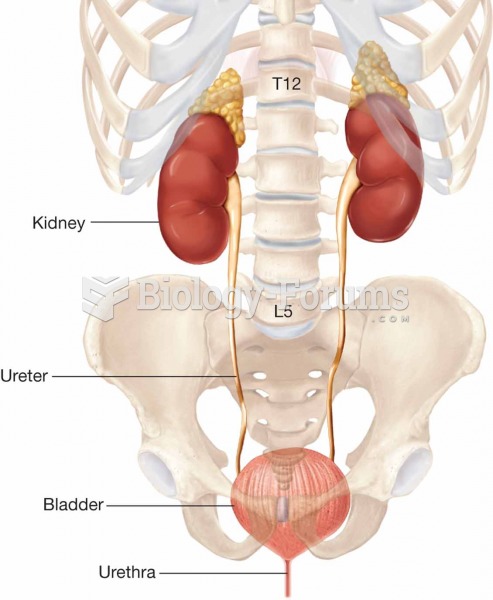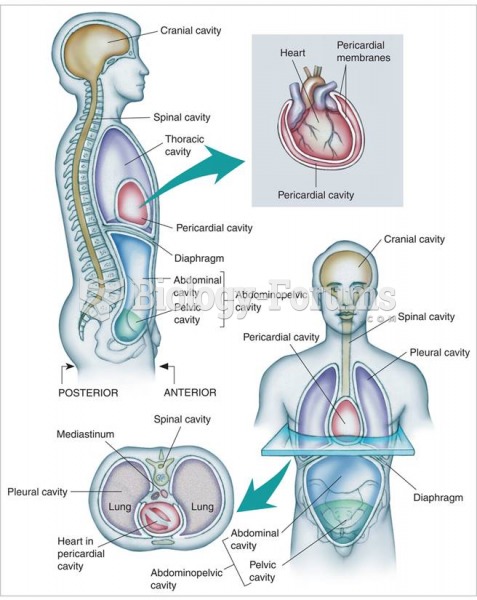|
|
|
Did you know?
In the United States, there is a birth every 8 seconds, according to the U.S. Census Bureau's Population Clock.
Did you know?
In 1864, the first barbiturate (barbituric acid) was synthesized.
Did you know?
The immune system needs 9.5 hours of sleep in total darkness to recharge completely.
Did you know?
The familiar sounds of your heart are made by the heart's valves as they open and close.
Did you know?
Everyone has one nostril that is larger than the other.







